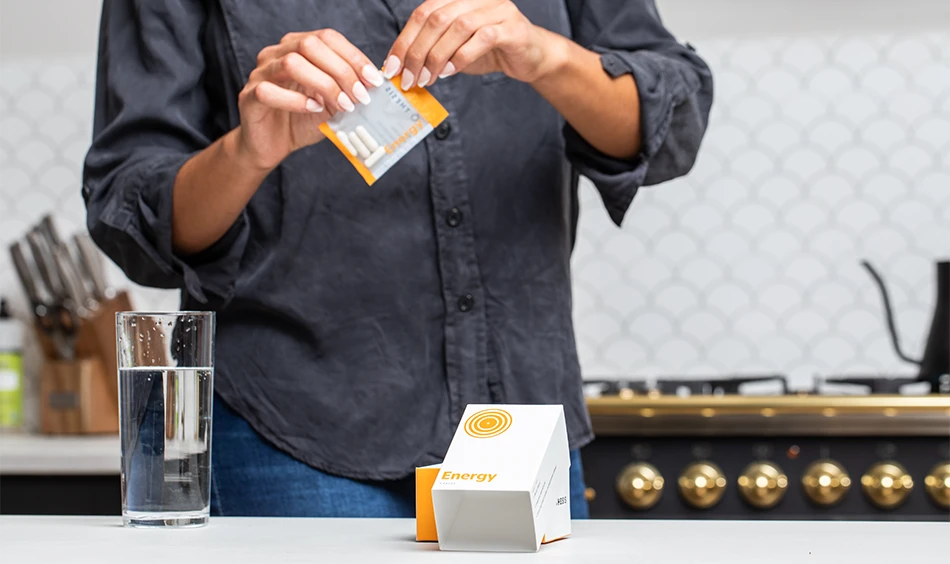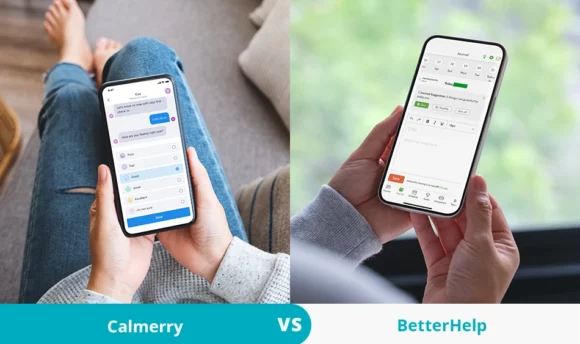What Are Nootropics? Types, Benefits, and Risks
Nootropics claim to boost brain power and improve memory. Is it too good to be true?

Whether you’re trying to focus on your college studies or are worried about dementia, you may have heard of nootropics.
Whilst these substances may be effective when prescribed for brain disorders, their use as a concentration booster and cognitive enhancer in healthy people is much more controversial.
Keep reading to discover what nootropics are, what they do to help your brain, and how to use these smart drugs correctly.
What Are Nootropics?
Often referred to as “smart drugs,” nootropics are either natural or artificial substances that are known to be cognitive enhancers. This means that they help to improve the cognitive performance and wellness of your brain over time.
The supplements have been shown to have several benefits in improving brain function, including increased focus, better memory, better sleep, improved relaxation, and more.
While some nootropics are only available by doctor’s prescription, others are easily available over the counter.
Types of Nootropics
There are 3 main types of nootropics: synthetic compounds, prescription medications, and dietary supplements.
#1 Synthetic compounds
Synthetic compounds are nootropics that can be purchased over the counter. They include racetams, compounds that help to regulate neurotransmitters, such as glutamate and acetylcholine.
Some of the most commonly used types of racetams include:
- Piracetam
- Aniracetam
- Oxiracetam
- Pramiracetam
- Phenylpiracetam
#2 Prescription medications
Nootropics that are prescribed over the counter are used mainly to manage the symptoms of physical and mental health conditions.
For instance, ADHD can be treated either with methylphenidate, a stimulant medication, or Adderall, a type of amphetamine.
Memantine has been shown to block NMDA receptors, making it an ideal nootropic for treating mild cognitive impairment and Alzheimer’s disease. When overactivated, these receptors have been found to cause neurons to die. Neurons are essential for carrying information through the body and brain.
Another type of prescription nootropic is modafinil, a stimulant that treats sleep conditions such as narcolepsy and sleep apnea.
#3 Dietary supplements
Many foods and beverages contain natural substances that have nootropic effects, such as caffeine. Some supplements are also used as cognitive enhancers and can be purchased over the counter.
For example, creatine is an amino acid that can be purchased in supplement form. It can also be found in seafood and red meat, such as beef.
As well as being used by gym goers to boost athletic performance, creatine improves brain functioning by increasing its energy supply.
L-theanine is another type of amino acid that naturally occurs in green and black tea and some mushrooms. It boosts theta and alpha brain waves, promoting relaxation and creativity.
This amino acid also increases the presence of the hormones serotonin and dopamine in the brain, both of which help to improve memory.
Omega-3 fatty acids are polyunsaturated fats found in fish, such as cod, salmon, and sardines, as well as in fish oil supplements. They help to turn on your brain’s growth hormone and have anti-inflammatory properties.
Brain inflammation plays a crucial role in Alzheimer’s, so consuming omega-3 fatty acids helps to reduce your risk of developing the disease by repairing brain cells.
Herbal supplements from plants and trees also work as nootropics. Ginkgo biloba is found in the leaves of trees native to Asia and has memory-enhancing effects for dementia patients.
The Chinese shrub panax ginseng is effective in reducing the risk of cognitive impairment and diseases such as Parkinson’s and Alzheimer’s.
What Are Nootropics Used for?
As cognitive enhancers, there are several different types of nootropics that have a wide variety of uses. They may help to increase focus, improve memory, and boost creativity, all of which contribute to better mental function.
Many nootropics are approved by the Food and Drug Administration (FDA) to treat specific conditions, such as attention-deficit hyperactivity disorder (ADHD) and Alzheimer’s disease.
For instance, a study showed that the nootropic L-tyrosine helped patients with ADHD perform better on a working memory test. Stimulants such as Adderall help to focus attention and are often prescribed for those with ADHD.
Not only are they ideal for managing the symptoms of various neurodegenerative diseases, but nootropics also improve working memory.
Research indicates that creatine has a positive impact on short-term memory, helping users to retain information and learn more effectively.
Creatine is also used within supplements that aim to help gym-goers build muscle mass. A study found that those who take creatine could expect to double their strength and lean muscle gains in the gym.
This is because it helps the body to produce new adenosine triphosphate (ATP) stores in the body during high-intensity exercise. ATP is the main form of energy used by the body for muscle function.
L-theanine increases alpha wave activity in the brain, which is associated with increased creativity. This nootropic is thought to be most effective when taken alongside caffeine. Both can be found naturally in black and green tea.
Who takes nootropics?
Nootropics were originally designed for older people looking to improve their memory. Today, they are used by a variety of age groups looking to boost the performance of their brain.
Nootropics are also used as a natural alternative medicine by those with attention deficit hyperactivity disorder (ADHD). They can be used in combination with prescription drugs to help manage the symptoms of ADHD.
This is because nootropics contain dopamine, a feel-good chemical that also improves focus for those with attention issues.
As they are effective in boosting brain functioning, nootropics can be used to treat certain brain diseases, such as Alzheimer’s, Parkinson’s, and Huntington’s diseases.
However, those with Alzheimer’s should take medically-prescribed nootropics to ensure that they receive the right type of supplement for their condition.
As some nootropic supplements help with sports performance, they may be taken by athletes, sportspeople, and bodybuilders. For instance, creatine helps to build muscle mass and has been proven to increase power and strength.
7 Benefits of Nootropics: Unlocking Your Mental Potential
Different types of nootropics have different functions, meaning that they are effective for brain functioning in a variety of ways.
Below are 7 key benefits of nootropics that may convince you to give the brain boosters a go.
#1 Boosts ability to focus
Nootropics, such as modafinil, are designed for those struggling to sleep. However, they are often used by individuals as a natural stimulant to improve their focus and productivity levels at work or college.
This is because they increase the activity of neurotransmitters, brain chemicals that support awareness, attention, and focus. They also increase dopamine levels in the brain, which improves mood alongside concentration ability.
Nootropics are useful as sports nutrition supplements because they can help improve your motivation and focus in the gym. This is ideal for those who want to train hard and achieve their fitness goals.
#2 Supports brain function
One advantage of nootropics is that they increase the production of neurotransmitters within the brain. Neurotransmitters are chemical messengers that help the brain and body to function well.
They also improve blood circulation by supporting the functioning of vessels to carry blood. This increases the flow of oxygen and nutrients to the brain, which positively impacts your cognitive processes.
Nootropics top up the brain’s fuel reserves to ensure that it has enough energy to function. The brain is the most demanding organ in terms of its energy needs, consuming 20% of the body’s total energy.
As well as providing the brain with energy, they also optimize energy metabolism. They do this by helping the brain’s mitochondria to function efficiently, which has been shown to reduce the risk of Alzheimer’s disease.
Although nootropics are good for boosting long-term memory, this is not their only purpose. Caffeine allows your brain to access several chemical transmitters, such as acetylcholine. This helps to improve your short-term memory for learning purposes.
#3 Improves mental clarity
Drinking green tea allows you to consume L-theanine, a naturally occurring nootropic that can help those who frequently experience brain fog.
As well as being beneficial for stress relief and relaxation, L-theanine may help to maintain optimal levels of dopamine, serotonin, and GABA in the brain. These neurotransmitters help to balance your mood and keep you calm.
Together, these factors provide you with a sense of mental clarity. This allows you to let your thoughts flow freely, which is an ideal state of mind for fostering creative thinking.
#4 Reduces stress levels
High stress levels can negatively impact your brain’s ability to perform at its best, meaning that you may struggle to stay focused on important tasks.
Adaptogens, a specific type of nootropic, are proven to be useful for the reduction of stress and anxiety. They also replenish chemical pathways within the brain that help you to focus.
Taking adaptogens, therefore, allows you to approach tasks with a clearer mind, which helps to boost your performance.
#5 Reduces inflammation
Studies show that nootropics, such as piracetam, have antioxidative and anti-inflammatory effects.
Many nootropics contain antioxidants that protect the brain against damage caused by free radicals. They help to fight these free radicals, slowing age-related mental decline and helping the brain to stay healthier for longer.
However, tests have mainly been conducted on animals, so more research is needed on human subjects to confirm piracetam’s effectiveness on the brain.
#6 Aids active muscle recovery
Although their main purpose is to improve brain functioning, nootropics can also be used to enhance physical performance.
They are, therefore, often utilized by bodybuilders to increase muscle mass, improve focus in the gym, and help with active muscle recovery post-workout.
For instance, gym-goers may take nootropic supplements that contain vitamin B6. The role of B6 is to convert food into glucose for energy that can be used whilst working out.
During exercise, muscle tissues sustain tiny tears, which require energy to repair. Vitamin B6 ensures that the body has enough energy to respond to genes that support muscle repair. This allows muscles to grow in size and strength.
#7 Provides hormonal balance
Many nootropics focus on optimizing cognitive functions, such as memory and attention. They do this by helping the nerves send electrical signals to other parts of the body.
However, others also help to improve hormonal balance, which is another key factor in good cognitive performance.
Found in vegetables such as broccoli, diindolylmethane (DIM) is a nootropic that maintains levels of estrogen in the body.
Estrogen is a hormone that improves the functioning of the cholinergic system within the brain, which is responsible for regulating attention and brain processing. This, therefore, boosts your brain’s memorizing and learning abilities.
DIM also maintains optimal testosterone levels for men. Low testosterone has been linked with age-related cognitive decline.
Potential Side Effects of Nootropics
If used for the correct purposes, nootropics have minimal side effects.
As mentioned, stimulants are a type of prescription nootropic that help to manage the symptoms of ADHD. However, it is becoming more common for others, particularly college students wanting to improve their focus, to use these drugs illegally.
Although they may help to boost attention levels in the short term, in the long term, nootropic misuse may cause a range of serious side effects for healthy users.
This can include blurred vision, high blood pressure, insomnia, circulatory problems, and addiction.
You should also carefully consider how you take substances that have nootropic effects. For example, you should avoid taking caffeine in powder or pill form, as you are more likely to overdose.
Overconsumption of caffeine is toxic and can cause irregular heartbeat, seizures, and even death. Instead, drink it safely in green tea, black tea, or coffee.
Are Nootropics Effective?
Out of the 80 types of nootropics that are available to buy in supplement form, only some of these are effective.
There are several nootropics backed by clinical research, which shows that they work to improve brain functioning. However, studies for some nootropic supplements have only been conducted on animals, so the benefits for humans cannot be confirmed.
What Are the Best Nootropics?
The type of nootropic that is best will depend on your needs. For instance, doctors may prescribe nootropics such as Adderall or modafinil to help those with ADHD to manage the symptoms of their condition.
However, if you are a healthy individual wanting to use nootropics to improve brain function, it’s important to know that these types of synthetic stimulants are mostly controlled substances.
This means that possessing them without a prescription is illegal and can cause serious side effects when misused, such as heart complications, addiction, or even death.
Therefore, some of the best and safest types are nootropics that are natural or extracted from natural sources.
For example, the tree ginkgo biloba is one of the most widely studied natural nootropics. A 2022 review of over 250 research papers summarized that ginkgo biloba was the “most relevant nootropic” for helping the brain to receive sensory information.
This includes skills such as hand-eye coordination.
FAQs
Yes, nootropics are safe as long as they are used correctly. Some nootropics can only be obtained through medical prescription, such as those used to manage the symptoms of ADHD.
Although they can help to improve focus and memory, these stimulants should not be used without a legitimate prescription, during pregnancy, or by those who are breastfeeding.
Stimulant misuse can cause serious side effects such as seizures, psychosis, and heart attacks.
You can build a tolerance to nootropics, which are stimulants because they affect brain function. This means that you can develop an addiction to them.
To avoid becoming addicted, try switching the nootropics you use every few months.
There is much evidence to suggest that nootropics are legit in helping to improve cognitive function, boost memory, and increase your ability to focus.
However, most nootropics are classified as dietary supplements and are, therefore, not regulated by the Food and Drug Administration (FDA). This means that the FDA does not endorse the claims made by nootropic manufacturers about their benefits.
Also, most nootropic supplements do not require controlled human trials before they can be marketed. Many studies on the benefits of nootropics have, therefore, been conducted on animals instead.
A Word From an MD
Taking nootropics can be an effective way to increase focus, protect your memory, and maintain brain health.
Although you may experience some benefits, you should not rely on nootropics alone to keep your brain healthy. Eating a balanced diet, socializing, and walking more can also contribute to good cognitive function.
If you are taking other medications or have a mental health condition, nootropics may cause dangerous side effects or worsen symptoms.
Therefore, whether they are prescribed or purchased over the counter, you should always consult your doctor before taking nootropics.
You should always stick to the recommended dose on the product’s packaging to avoid unwanted side effects, such as headaches, heartburn, and stomach issues. If you begin to notice any of these symptoms, then stop taking the supplement immediately.
Conclusion
Nootropics are “brain boosters” that can help improve mental performance, increase focus, and enhance athletic performance. They are also useful in managing the symptoms of ADHD and Alzheimer’s disease, for example.
However, these “smart drugs” are not regulated by the FDA in the same way that prescription drugs are. Therefore, you should stick to nootropics from reputable and trusted brands. Do not use them if you are pregnant or breastfeeding.
You should also always follow the advice of your doctor, as misuse of stimulant nootropics can cause serious side effects, such as heart complications, stomach problems, seizures, psychosis, addiction, and even death.

















































 Select your language:
Select your language: 









